Kaleigh Clary
Exploratory Not Explanatory: Counterfactual Analysis of Saliency Maps for Deep RL
Dec 09, 2019

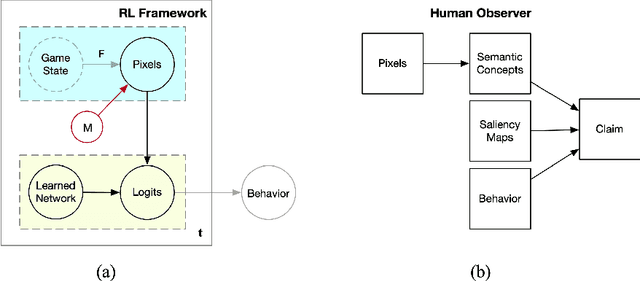
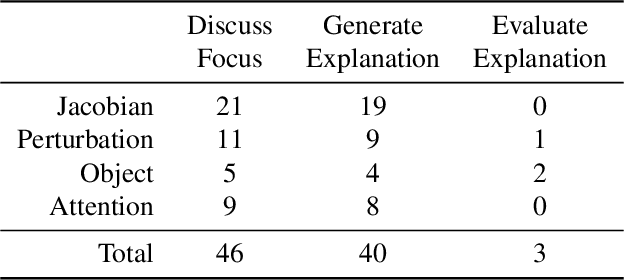
Abstract:Saliency maps have been used to support explanations of deep reinforcement learning (RL) agent behavior over temporally extended sequences. However, their use in the community indicates that the explanations derived from saliency maps are often unfalsifiable and can be highly subjective. We introduce an empirical approach grounded in counterfactual reasoning to test the hypotheses generated from saliency maps and assess the degree to which saliency maps represent semantics of RL environments. We evaluate three types of saliency maps using Atari games, a common benchmark for deep RL. Our results show the extent to which existing claims about Atari games can be evaluated and suggest that saliency maps are an exploratory tool not an explanatory tool.
Toybox: A Suite of Environments for Experimental Evaluation of Deep Reinforcement Learning
May 07, 2019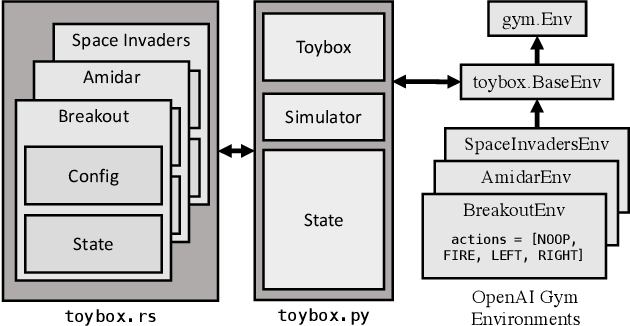
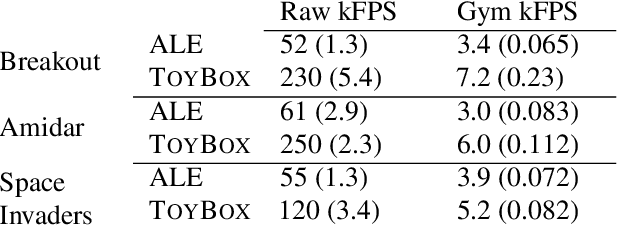
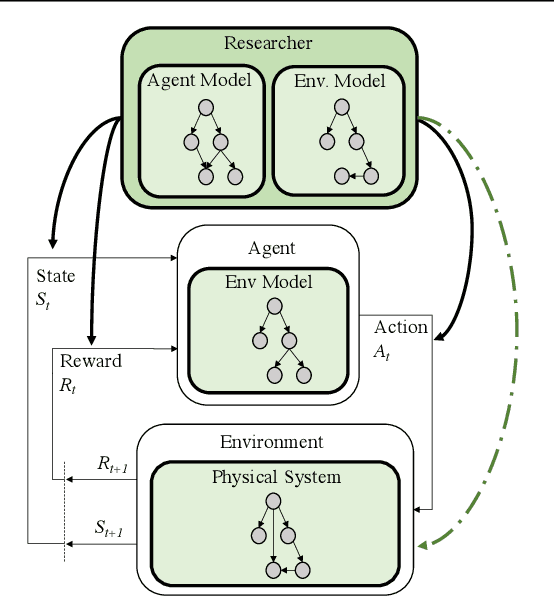
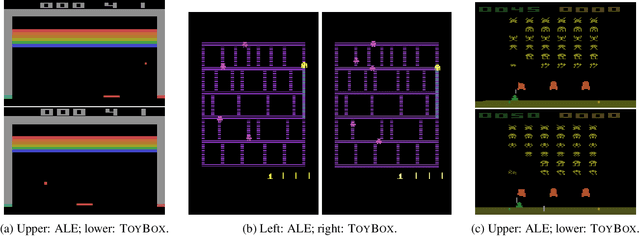
Abstract:Evaluation of deep reinforcement learning (RL) is inherently challenging. In particular, learned policies are largely opaque, and hypotheses about the behavior of deep RL agents are difficult to test in black-box environments. Considerable effort has gone into addressing opacity, but almost no effort has been devoted to producing high quality environments for experimental evaluation of agent behavior. We present TOYBOX, a new high-performance, open-source* subset of Atari environments re-designed for the experimental evaluation of deep RL. We show that TOYBOX enables a wide range of experiments and analyses that are impossible in other environments. *https://kdl-umass.github.io/Toybox/
Let's Play Again: Variability of Deep Reinforcement Learning Agents in Atari Environments
Apr 12, 2019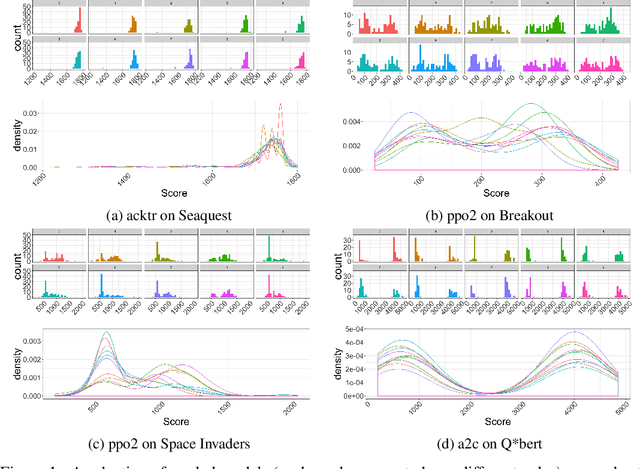
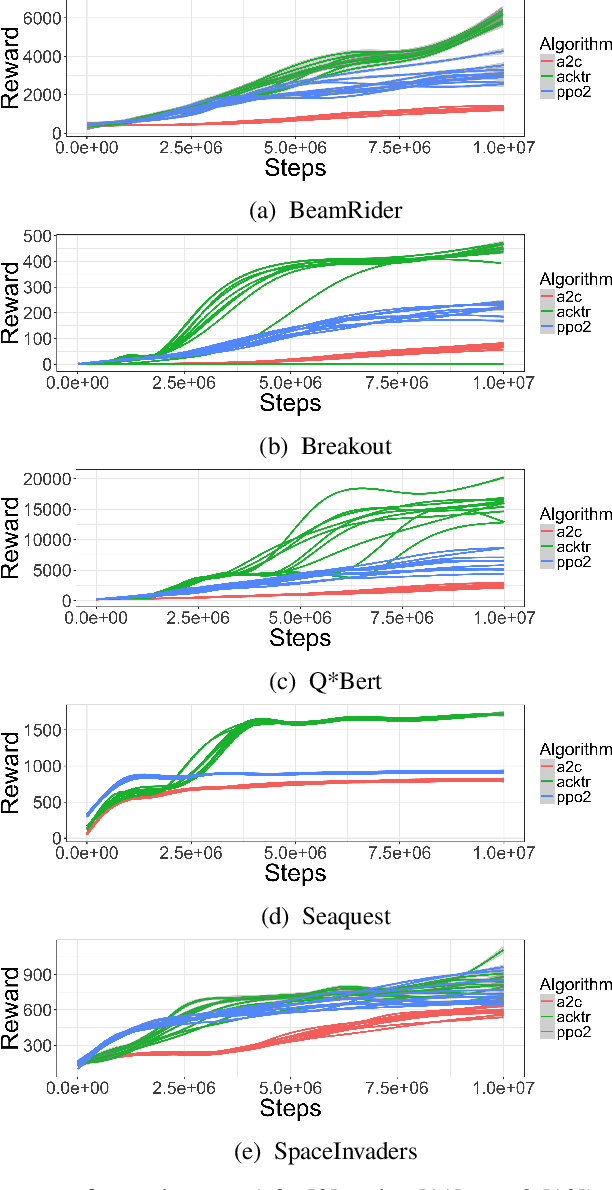


Abstract:Reproducibility in reinforcement learning is challenging: uncontrolled stochasticity from many sources, such as the learning algorithm, the learned policy, and the environment itself have led researchers to report the performance of learned agents using aggregate metrics of performance over multiple random seeds for a single environment. Unfortunately, there are still pernicious sources of variability in reinforcement learning agents that make reporting common summary statistics an unsound metric for performance. Our experiments demonstrate the variability of common agents used in the popular OpenAI Baselines repository. We make the case for reporting post-training agent performance as a distribution, rather than a point estimate.
ToyBox: Better Atari Environments for Testing Reinforcement Learning Agents
Dec 10, 2018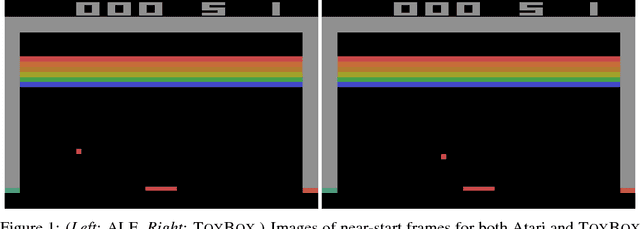
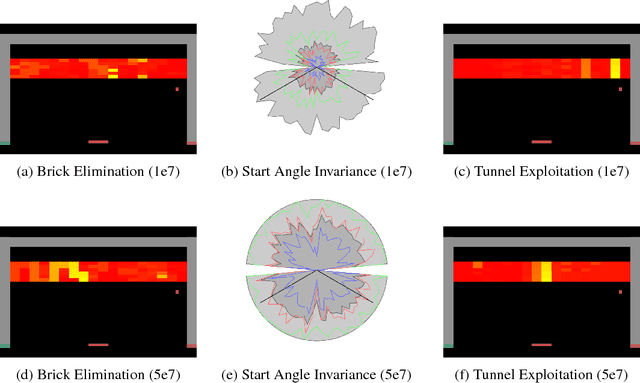
Abstract:It is a widely accepted principle that software without tests has bugs. Testing reinforcement learning agents is especially difficult because of the stochastic nature of both agents and environments, the complexity of state-of-the-art models, and the sequential nature of their predictions. Recently, the Arcade Learning Environment (ALE) has become one of the most widely used benchmark suites for deep learning research, and state-of-the-art Reinforcement Learning (RL) agents have been shown to routinely equal or exceed human performance on many ALE tasks. Since ALE is based on emulation of original Atari games, the environment does not provide semantically meaningful representations of internal game state. This means that ALE has limited utility as an environment for supporting testing or model introspection. We propose ToyBox, a collection of reimplementations of these games that solves this critical problem and enables robust testing of RL agents.
 Add to Chrome
Add to Chrome Add to Firefox
Add to Firefox Add to Edge
Add to Edge